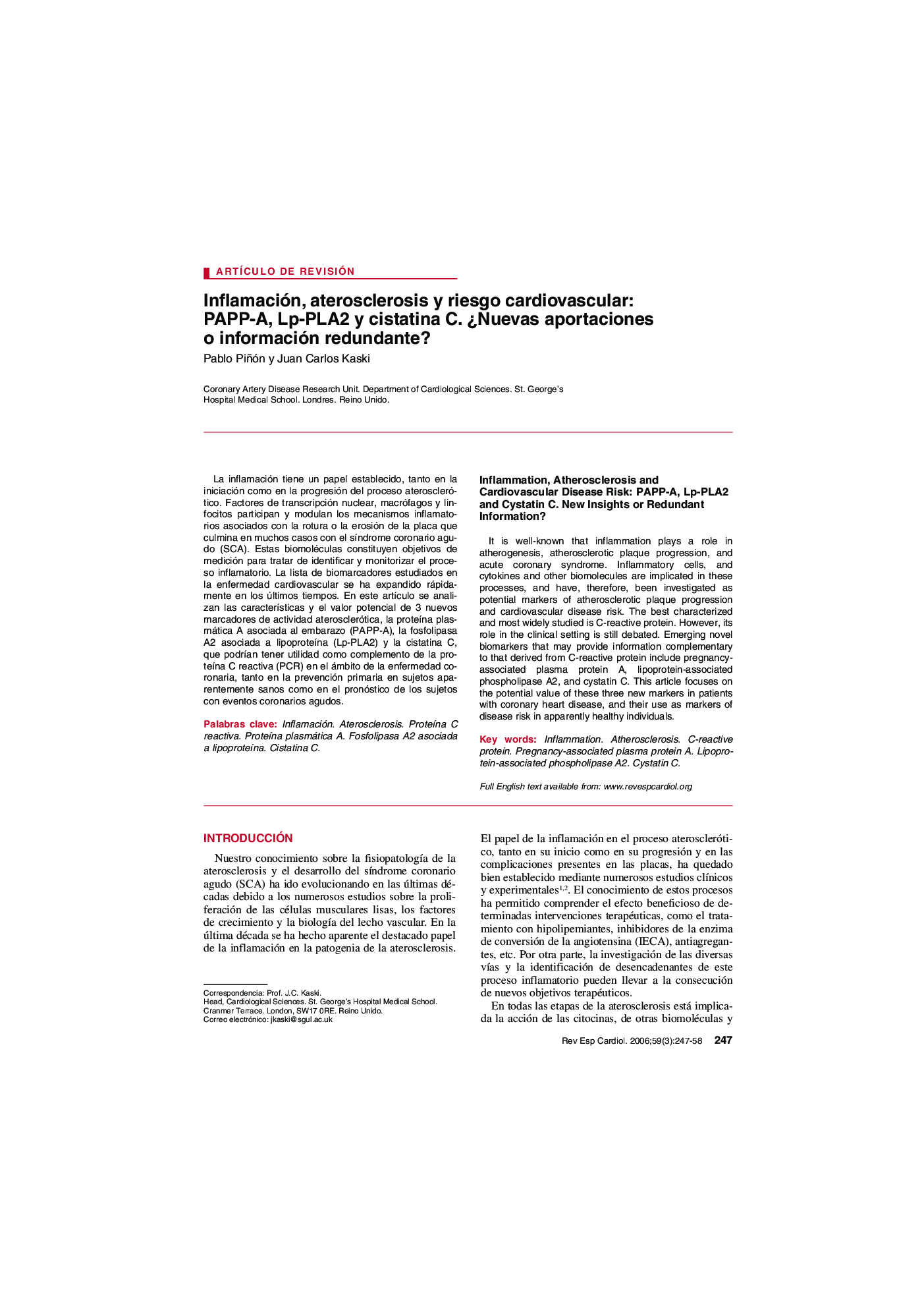| Article ID | Journal | Published Year | Pages | File Type |
|---|---|---|---|---|
| 3016044 | Revista Española de Cardiología | 2006 | 12 Pages |
Abstract
It is well-known that inflammation plays a role in atherogenesis, atherosclerotic plaque progression, and acute coronary syndrome. Inflammatory cells, and cytokines and other biomolecules are implicated in these processes, and have, therefore, been investigated as potential markers of atherosclerotic plaque progression and cardiovascular disease risk. The best characterized and most widely studied is C-reactive protein. However, its role in the clinical setting is still debated. Emerging novel biomarkers that may provide information complementary to that derived from C-reactive protein include pregnancyassociated plasma protein A, lipoprotein-associated phospholipase A2, and cystatin C. This article focuses on the potential value of these three new markers in patients with coronary heart disease, and their use as markers of disease risk in apparently healthy individuals.
Keywords
Related Topics
Health Sciences
Medicine and Dentistry
Cardiology and Cardiovascular Medicine
Authors
Pablo Piñón, Juan Carlos Kaski,
